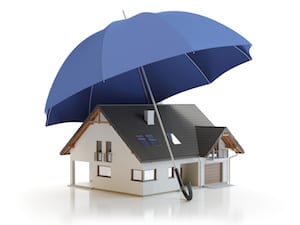Insuring Your Home in an HOA Community

Homeowners associations (HOAs) are common, and not just for condominiums and townhomes. Some single-family detached homes are located within an HOA neighborhood or community. When buying a new home, whether multi- or single-family, it’s important to understand the effects it can have on the kinds of insurance coverage you need.
When you live in an HOA community, the HOA holds a master insurance policy. As a member, you pay into the HOA and therefore the overall policy. You still have an obligation to insure what the master policy does not.
Do not assume that something is covered by your homeowner association fees. Read your HOA master policy to understand specifically what parts of your condominium complex are covered and what parts aren’t.
Types of HOAs
Single-family communities – The HOA usually insures common areas such as parks, playgrounds, swimming pool areas and so forth. You are responsible for insuring your home.
Condominiums – The HOA policy for condominiums insures most of your residence, but you are responsible for insuring the interior of your unit as well as your personal property.
In an HOA community, if you own a single-family detached home you will need to own traditional home insurance. If you own in a multi-unit building you’ll want to purchase condominium insurance.
What Kind of Coverage Do You Need?
The most common type of HOA is for condominium or townhome communities. The HOA policy most commonly covers all buildings’ exteriors and common grounds, but it may also cover each unit’s electrical and plumbing.
When purchasing traditional home insurance or a condo policy, it’s wise to consider the cost to replace all your items, not just cash value, which deducts depreciation. With cash value only coverage, a payout will likely not be enough for you to replace your damaged items.
If you’re purchasing coverage for a condominium, loss assessment coverage is often a good option. This protects you should an HOA not have sufficient insurance to cover a loss. When this happens, the HOA may call on members to make up the difference, which can be an unexpected expense for the homeowner.
With condominiums, a leak in your plumbing can potentially affect your neighbors. This is one reason HOAs commonly require homeowners purchase a specified minimum level of personal liability coverage.
Understand Your HOA’s Obligations
It’s important to understand your HOA’s insurance coverage. Once you do, you can go about covering yourself properly. Be sure to compare policies and costs, whether you’re looking to purchase condominium insurance or homeowners insurance.







